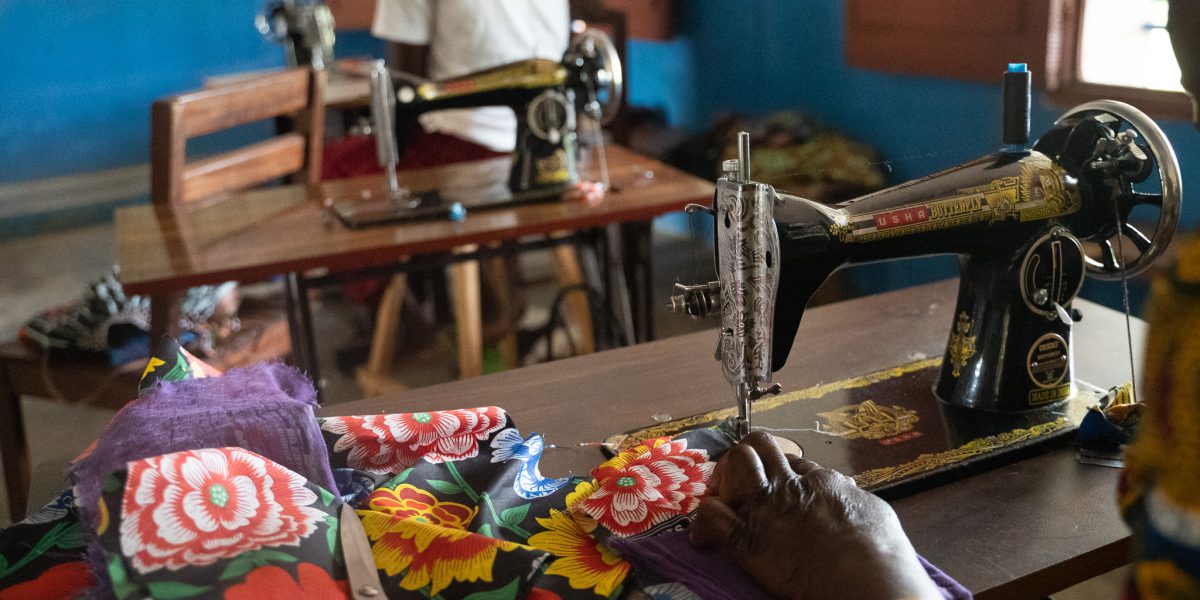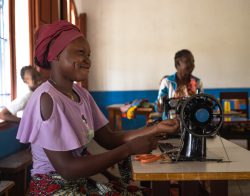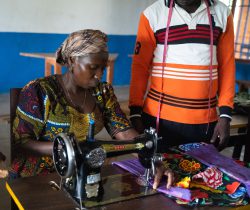Vocational Training: A Source of Hope for Internally Displaced Persons (IDPs) in Central African Republic (CAR)
30 November 2023|JRS West Africa, Natalia SR

Since 2013, hundreds of thousands of people have been forced to flee their homes due to violence in the Central African Republic (CAR). Currently, one in five Central Africans is internally displaced or a refugee. The situation of internally displaced persons (IDPs) within the country is delicate as they are often lacking basic assistance while being deprived of the right to education. This leaves children at risk of not returning to school and being exposed to recruitment by armed groups.
JRS, in partnership with Alboan, offers vocational training courses at the St Joseph Centre in Bambari. These courses help to build support networks and facilitate access to markets and economic and social integration within the host community, generating independence and self-sufficiency.
Currently 60 people are being trained in different areas: sewing, mechanics, electricity and carpentry. After the training, the students receive a kit with the necessary materials to develop their own business.
“Due to the conflict and violence, I didn’t work before, I stayed at home because I was afraid; but since I came to Bambari, JRS has hired me as a trainer”, says Chris, the facilitator of the electricity course. “The trainees are always willing to learn, they know this training is a great opportunity”, he concluded.

Repio Gina, former student at the training, has opened her own sewing business thanks to the material and knowledge she acquired. “In Bambari, especially the youth who have lost their parents because of violence, we have a lot of difficulties. I didn’t go to school, and I didn’t have a job. That’s why I decided to go into training.” Gina is proud of what she has achieved, “now I earn my own money because people come to buy the clothes I sow myself, that helps me a lot and makes me feel very good”.
This activity not only provides better livelihood opportunities . It also generates peace and reconciliation. Given the country’s history of conflict, which the young people have experienced, these courses are a safe space where they can develop professionally and personally.




